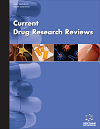
Full text loading...

The worldwide market for over-the-counter (OTC) medications is quickly developing, providing consumers with increased self-medication options while facing substantial regulatory issues due to varied approval procedures, labeling regulations, and safety standards between nations. Despite efforts to standardize regulatory frameworks, differences in component classification, dosage limitations, and risk assessment standards impede producers, healthcare professionals, and lawmakers. This analysis looks at the regulatory environment of over-the-counter pharmaceuticals in major countries, including the United States Food and Drug Administration (FDA), the European Medicines Agency (EMA), and regulatory organizations in Asia-Pacific and developing economies, highlighting notable disparities in approval procedures, marketing authorization, and pharmacovigilance. Consumer safety is one of the most important problems in regulatory divergence, since differences in authorized active ingredients, warnings, and recalls can lead to abuse, adverse medication responses, and cross-border product availability anomalies. Furthermore, the lack of standardized testing and quality control procedures hampers international trade and public health policy. Emerging threats, such as antimicrobial resistance (AMR), counterfeit OTC goods, and digital health breakthroughs, necessitate a more integrated and adaptable global regulatory framework. This assessment also looks at continuing harmonization efforts by organizations such as the International Council for Harmonization (ICH) and the World Health Organization (WHO), as well as best practices for expediting global regulatory procedures. Addressing regulatory divergence with data-driven decision-making, digital pharmacovigilance, and risk-based categorization frameworks can help enhance consumer safety, market efficiency, and public health outcomes. The future of over-the-counter medication regulation lies in collaborative policymaking, real-time safety monitoring, and rapid adaptability to changing healthcare concerns.

Article metrics loading...

Full text loading...
References


Data & Media loading...